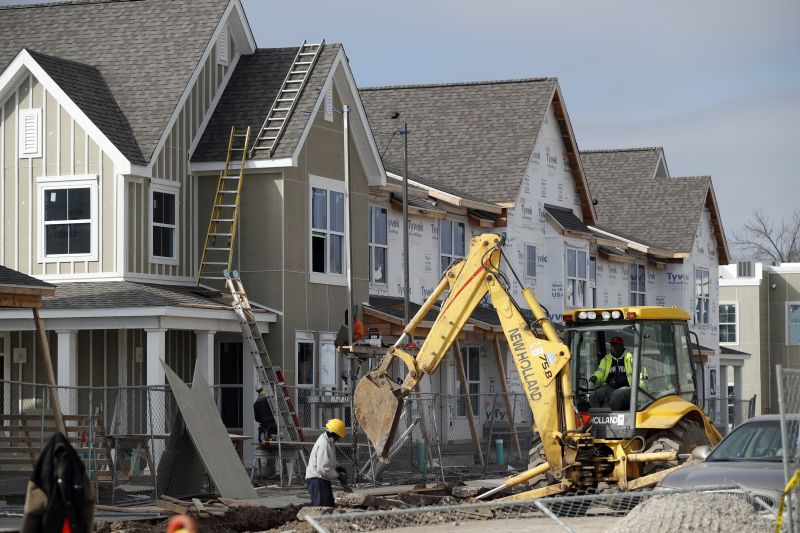A troubling trend of construction firms illegally hiding workers in shell companies to avoid paying state-required workers' compensation coverage began emerging in Florida in the early 2000s.
Historically, dishonest contractors lowballed large amounts of their payroll, undetected. The goal was to under-report employees and salaries, and lie that employees worked safer jobs than they really did.
Fewer employees, lower payroll and safe jobs reduced workers' compensation premiums. Dishonest construction firms each can illegally shave hundreds of thousands of dollars in premiums a year. They also can save up to 30 percent or more on contractor labor costs.
The shell-company schemes allow this deception and illicit savings on a much larger scale. Those Florida shell companies were a visible warning of a national trend in workers' compensation premium fraud. Exact fraud losses are in short supply, yet shell-related schemes likely steal billions of workers' compensation insurance dollars a year, skew honest market competition and contribute to higher workers' compensation premiums.
Shell schemes often were discovered only when employees started making claims for often-tragic work injuries such as falls from scaffolding. Hidden in shell companies, insurers had no idea of the number of employees creating potential injury exposures.
The result: Workers' compensation insurers in Florida collectively were liable for millions of dollars in benefits, payable to injured employees they knew nothing about until receiving claims for work injuries.
|Shell networks expanding
The trend today: Shell schemes in construction have risen to new levels of scope and sophistication in the last 10 years. Networks of dishonest specialty contractors, labor brokers, facilitators, paid straw shell owners and check-cashing stores can avoid far more workers' comp premiums and taxes than the traditional premium scams. Shell schemes also have spread to other states, especially states with large construction activity.
Shell schemes generally have these illicit goals:
• Remove and hide payroll to avoid workers' compensation premiums, state and federal payroll taxes, and overtime pay;
• Covertly allow cheap cash-paid labor onto work sites;
• Create a fraudulent layer of insurance coverage between the employer and injured workers; and
• Allow construction contractors and sub-contractors to under-bid honest competitors.
Construction projects are managed by owners or general contractors. Gone are the days when general contractors' own employees built housing subdivisions, office complexes and other buildings. Specialty subcontractors now are typically hired to do work such as excavation, plumbing, electrical work, concrete work, framing and drywall.

Labor brokers are key cogs in sophisticated shell scams. (AP Photo/Jeff Roberson, File)
Specialty subcontractors, also looking to reduce their payroll burden, hire labor brokers. They oversee a large a large, transient and uninsured work force. The brokers supply the labor for the construction work to be performed. The brokers are not “companies” per say. Rather, they act more like company foremen or field supervisors. They also may be someone simply with phone numbers of dozens to hundreds of workers to place on a job site while supervised by the specialty subcontractor. Labor brokers are key cogs in sophisticated shell scams.
Then there are “facilitators.” They know construction and statutory requirements for insurance coverage, and recruit someone as straw owner of the shell company where workers will be hidden. Shell owners usually create false identities for themselves using bogus yet official-looking government identification. In Florida, for example, the ID might be a fraudulent Florida driver license.
|Shell owners use fake identities
False identities allow the shell-company owners and facilitators to simply walk away from or “burn” a shell company if an employee is injured, or if regulators or law enforcement start investigating.
Investigators have nobody to contact about the activities, and subsequent worker injuries, involving the shell company. Even if the facilitators are identified, they can easily deflect attention to the straw shell owner as the supposed culprit, except the “owner” now is untraceable. In fact, the shell's address usually is just a post-office box or rental apartment.
Working together, the facilitator and shell company owner create a corporation, generically named something like XYZ General Services, Inc. A vague name lets the shell work in multiple construction trades, thus increasing usability and profits. Many states also let persons easily create corporations online, without meeting or verifying identification in person.
The shell owner has an insurance agent provide a minimal workers' compensation policy for the new shell company. The facilitator usually accompanies the “owner” to the agent meeting, and is identified as a “friend helping set up the business.” The shell owner usually is described as being new to construction, and often new to the U.S. The facilitator thus requests and receives approval to call the agent and request insurance certificates for labor brokers.
|Duped insurance agents
Some insurance agents are involved in the scheme, while others are duped by the facilitator. Either way, a shell owner buys a minimal workers' comp policy, falsely describing the business as a small, two to four-person company doing work such as drywall installation, concrete, brick paving or carpentry.
The insurer sets the premium without realizing the deception. A small premium downpayment lets the facilitator embed the shell company into the scheme.
The labor brokers are complicit in the scheme. They need to prove their labor force is covered by workers' compensation in order to perform the work with the specialty contractors as if they are legitimate subcontractors.
Facilitators thus provide (rent) the name and paperwork of the new shell company for the labor broker to use. This protects them if state regulators inquire or the insurer audits the specialty contractor. Specialty contractors usually are aware of the scheme. Yet they are insulated from civil or criminal liability most of the time, unless they begin performing shell company functions such as payroll.
The small workers' compensation policy gives the labor broker the “golden ticket” for a work crew to do construction work, what appears to be a valid certificate of insurance. However, they use many more workers than were reported at the time of application. The straw shell owner likely will disappear, or maybe be hired to “own” other shells.
The shell owners collect $500-$1,000 per week merely for allowing their name to be used as owner. The shell now is ready to funnel large amounts of undeclared payroll to cash-paid workers.

Workers' compensation insurers collectively lose billions of dollars in premiums annually by some estimates. (Photo: Shutterstock)
|Shell names rented out
The facilitators effectively rent out their shell company's name. More important, the facilitators rent their valuable certificate of insurance to uninsured labor crews who work as if they are affiliated with the shell. In fact, they are independent and uninsured, though may believe in good faith they are covered.
General and specialty subcontractors can be directly involved. When contractors request an insurance certificate from uninsured labor brokers looking for work for their crew, they are directed to the facilitator. The facilitator contacts the agent, and has the insurance certificate in the name of the shell company falsely presented as the uninsured labor broker's company. The number of employees covered under a workers' compensation policy are almost never listed on the insurance certificate, so the massive deception is not evident at this point.
State-required proof of insurance is met, minimally. The contractor contracts with the shell owner so the uninsured labor crew can go to the work site. The labor broker bills the contractor, who pays for the work from their operating account. That usually is by one check each week, payable in the name of the shell company.
The checks are taken to a local check-cashing store. A pre-arranged deal was made with the proprietor, who is complicit. All checks made payable to the shell company are cashed, no matter who presents them. The check-cashing store and facilitator split a 5-10 percent fee for each check. The balance goes to the uninsured construction crew for wages. The 5-10 percent cut is much cheaper than buying workers' comp coverage and paying taxes.
Because the facilitator rents the policy to numerous labor brokers who may work on many projects, the large number of insurance certificates issued by the insurance agent are lopsided compared to the small declared payroll and staff size.
|Schemes discovered after serious injury
Insurers and agents normally don't track insurance certificates. Thus, they often discover schemes only when employees have a serious injury and a workers' compensation claim is made by an employee who was never reported to the insurer. Insurer audits occasionally uncover shell cons as well.
The facilitator instructs the shell owner to write a check from the shell company account, to be cashed at the check-cashing store. In some cases, the owners simply withdraw the cash and deliver it to the facilitator, who hands over the check casher's cut. Electronic transfers are a relatively new payment nuance.
The shell's bank account was created under the same false identification used to set up the shell. Currency transactions at the check-cashing store are falsified for checks of at least $10,000. The transactions also are documented to appear the shell owner made the transactions, even though the person cashing the checks represents dozens of uninsured labor brokers using the shell-company name and insurance certificate to obtain work.
|Shell company owner untraceable
Six suspects in the Tallahassee area were arrested in 2015 for allegedly creating multiple shell companies to hide workers and payroll. Ringleaders provided fake business cards to work crews. They were told to present the cards to state investigators who showed up onsite to inspect for proper workers' compensation coverage.
Millions of dollars in wages can be quickly funneled through a shell company. No year-end workers' compensation premium audit will be conducted because the shell company owner will be untraceable. Nor does the shell pay any payroll taxes. The facilitator also routinely burns the shell and forms a new one once or twice a year to throw off investigators. The shell may be burned sooner if an employee has a catastrophic injury.
Workers' compensation insurers collectively lose billions of dollars in premiums annually by some estimates. Just 10 labor brokers negotiated $1 billion of checks in less than three years in Florida. Phantom workers' comp injuries also add to the fraudulent losses, and potential damage to the commercial general liability industry.

Because such large amounts of cash are involved, premium scams attract organized crime syndicates that use the same shells to launder other criminal proceeds. (AP Photo/Wilfredo Lee)
|Duplicate injury claims
Insurer searches of the Insurance Services Office claims database now are locating duplicate injury claims for the same date of loss. The related impact: Injured workers involved in shell schemes are suing insurers under commercial general liability policies that aren't intended for what should be workers' compensation claims — hence, duplicate claims. The losses incurred by these schemes are tangentially imposing a cost burden on general liability insurers.
Because such large amounts of cash are involved, premium scams attract organized crime syndicates that use the same shells to launder other criminal proceeds.
Corrupt contractors with lower labor costs also can illicitly take over entire markets by lowballing competitors for contracts. This is happening in Florida, Georgia, Tennessee, Colorado and other states. Honest contractors may go out of business, lay off employees, or start cheating just to survive.
That indignity is magnified when workers' compensation insurers pass fraud losses onto business clients in higher premiums. The upshot is a steady erosion of law-abiding contractors who pay true premiums.
|Sue for workers' comp benefits
Significant tax revenue also is denied to municipalities, states, the federal government, Social Security, Medicare and unemployment insurers.
Injured workers also get inadequate medical care. They must sue for workers' compensation benefits, and are trapped in litigation to get bills paid by workers' comp or general-liability policies. The unpaid bills and shattered lives are passed along to everyone in higher medical costs, and increased burdens on safety nets such as Social Security disability. Among the needed reforms:
• Law enforcement needs adequate funding;
• State laws must keep pace with shell conspirators so crooked facilitators and contractors are held accountable; and
• Insurers and agents must look tighten their application, underwriting and auditing to spot the signals of shell cons.
“Corrupt construction companies know the limitations and practices of law enforcement and the insurance industry,” says Matthew Capece, an attorney with the United Brotherhood of Carpenters, which has tracked construction fraud since 1989. “Swindlers exploit those weaknesses for large profits and hundreds of millions in premium-fraud losses to insurers.”
Urgent action is needed to reverse the spread of shell schemes, protect the integrity of the construction industry, and stem draining losses for workers' compensation insurers.
David M. Borum, CFE, CFIC, CIFI, is assistant vice president-special investigations unit, at Swiss Re America. Geoffrey R. Branch, M.S., CFE is senior investigator-special investigations unit, group risk management, at Swiss Re America.
This article originally appeared in the Journal of Insurance Fraud in America. It is re-posted with the permission of the Coalition Against Insurance Fraud
Want to continue reading?
Become a Free PropertyCasualty360 Digital Reader
Your access to unlimited PropertyCasualty360 content isn’t changing.
Once you are an ALM digital member, you’ll receive:
- Breaking insurance news and analysis, on-site and via our newsletters and custom alerts
- Weekly Insurance Speak podcast featuring exclusive interviews with industry leaders
- Educational webcasts, white papers, and ebooks from industry thought leaders
- Critical converage of the employee benefits and financial advisory markets on our other ALM sites, BenefitsPRO and ThinkAdvisor
Already have an account? Sign In Now
© 2024 ALM Global, LLC, All Rights Reserved. Request academic re-use from www.copyright.com. All other uses, submit a request to [email protected]. For more information visit Asset & Logo Licensing.








